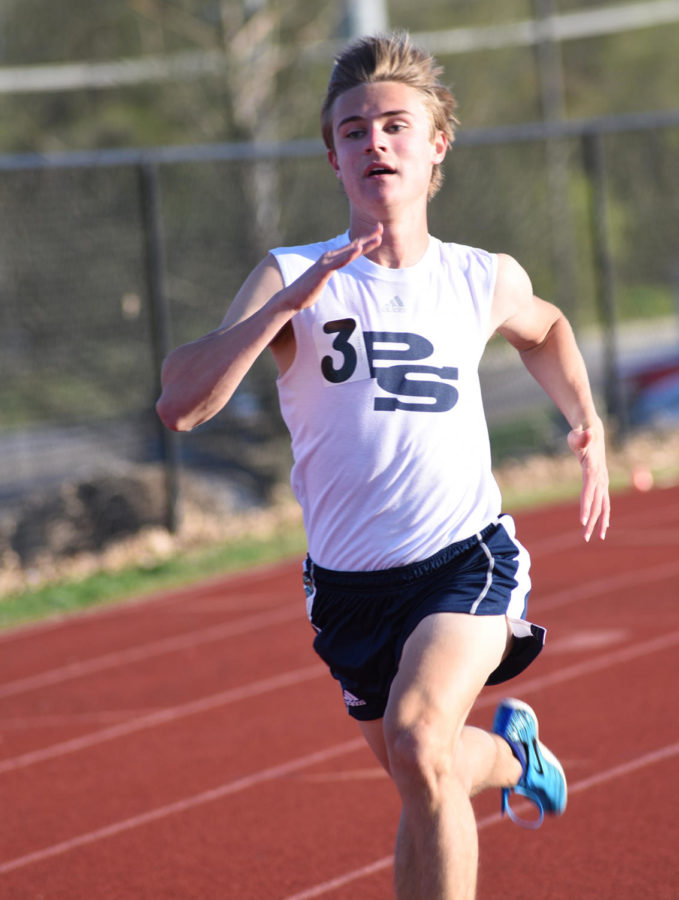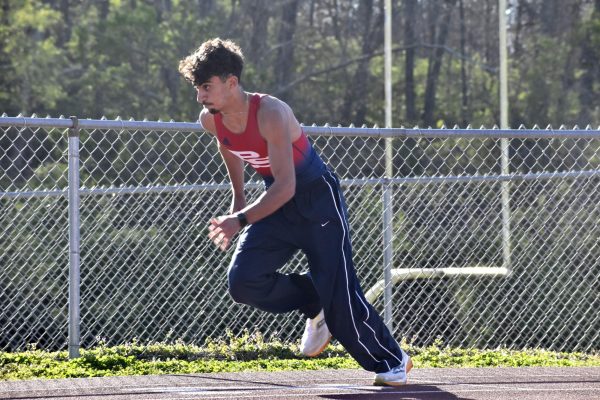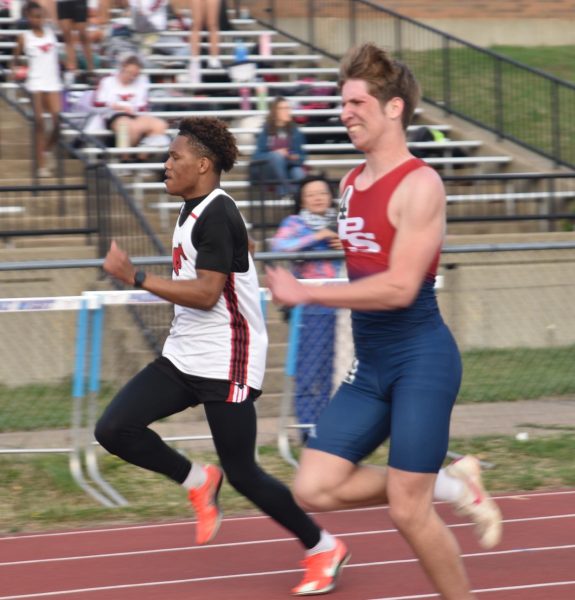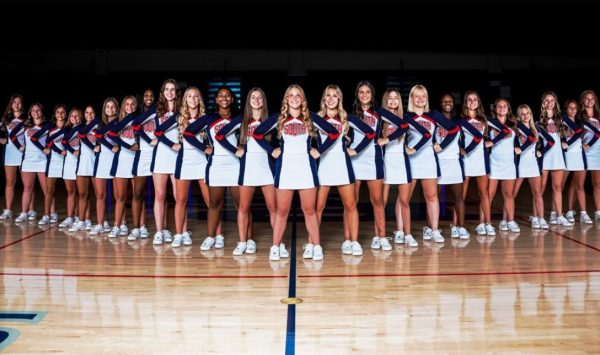Boys track heads to Sectionals
5 Patriots will compete on Saturday at Lafayette for a spot at State.
Senior Drew Hediger chugs down the backstretch of the track during the 400-meter dash at the Henle Holmes Invitational. Hediger will race on Saturday at Sectionals.
Imagine you had the chance to break a school record that has stood for over two decades. Imagine your pounding feet on the edge of the track, your heartbeat rapidly picking up, and your breathing getting heavier as you finish off your tenth repeat. Then, once you feel the most mentally and physically defeated, you go do more. This is an everyday process for Senior Drew Hediger, who looks to make it to State and place in the top eight this season in the 400-meter dash.
Patriot runners will compete at the Class 5 Sectional 2 meet this Saturday at Lafayette where they will fight for a spot at State.
For a 400-meter race, the most predominant energy system used by elite athletes is anaerobic glycolysis. This energy system can last from 30 to 40 seconds when trained, almost long enough to complete the entire race which takes the very best athletes between 44 to 50 seconds to complete. Over the first 200 to 300 meters, the concentration of lactate builds up in the muscle cells of the athletes. This build-up can give a sensation of pain, known as a “stitch,” to the runner, making the runner’s legs harder to push forward and soreness of the muscles sets in.
Hediger can sprint the 400-meter dash in under 51 seconds, but within the next few weeks, he expects to dip under 50 seconds.
“My goal is to make it to state, but the competition is tough in our sectional. I look to use the other competitors to push myself into the top four and run a sub 50 second 400,” said Hediger.
Hediger said the 400m is the hardest race he’s ever tried, and it’s hard to properly expend your energy during it.
“Strategy for the 400-meter is pretty weird. You do the first half of the race in a sustained effort that isn’t quite all-out. Then with about 150 meters to go, you give it your all. When I run this way, the lactic acid doesn’t build up too quick and I don’t run out of energy until the end,” Hediger said.
Aside from Hediger moving past districts with a second place finish, South’s 4×200-meter relay team, composed of sophomores Jake Martin, Tyler Suggs and Sebastian Sutton, and senior Trey Jones, squeezed past districts with a fourth-place finish and looks to move onto state.
4×200 member Sebastian Sutton, sophomore, is enthusiastic about advancing.
“I am just going to help my team out by doing the best I can,” Sutton said. “I always try my hardest in practice and hope it translates come race day.”
Historically, it takes under a 1:30 to advance to State in Missouri. At districts, the team ran a 1:35. Sophomore Tyler Suggs, another member of the relay squad, can’t wait for Saturday and is hoping to defy the odds.
“Our goal is to sneak in with a fourth-place finish and surprise a lot of teams,” Suggs said.
When asked who motivates them to be their best, Suggs and Hediger gave different answers.
“Matt Boling, the fastest high school sprinter in the country, encourages me to do my best every day,” Suggs said. “I see all of his Flotrack and Sportscenter highlights and I aspire to be like him someday.”
“Coach Skip [MacDowell] is the best; he always gives us free snacks and shoes. I love racing in my new spikes that he gave me and showing him how he has helped me become better,” Hediger said.
Most track athletes have played other sports or join track to condition for football or basketball. A lot of runners and throwers find that they love track, and that it brings an aspect of competition they’ve never seen before.
“Track is different than other sports because you gotta keep yourself accountable and find new limits every day,” Sutton said.
“I like how track is so much more individualized and intense, it’s something completely different than basketball or football,” said Suggs.













